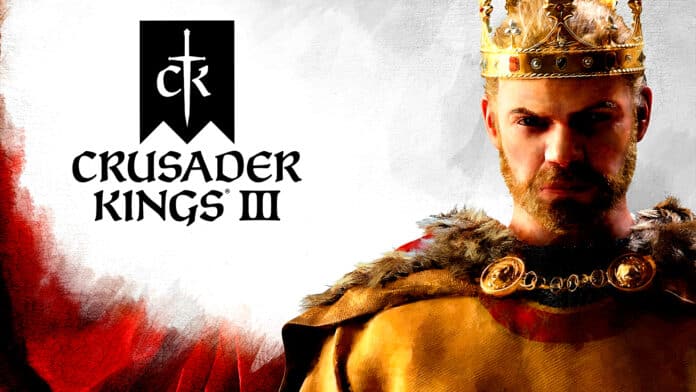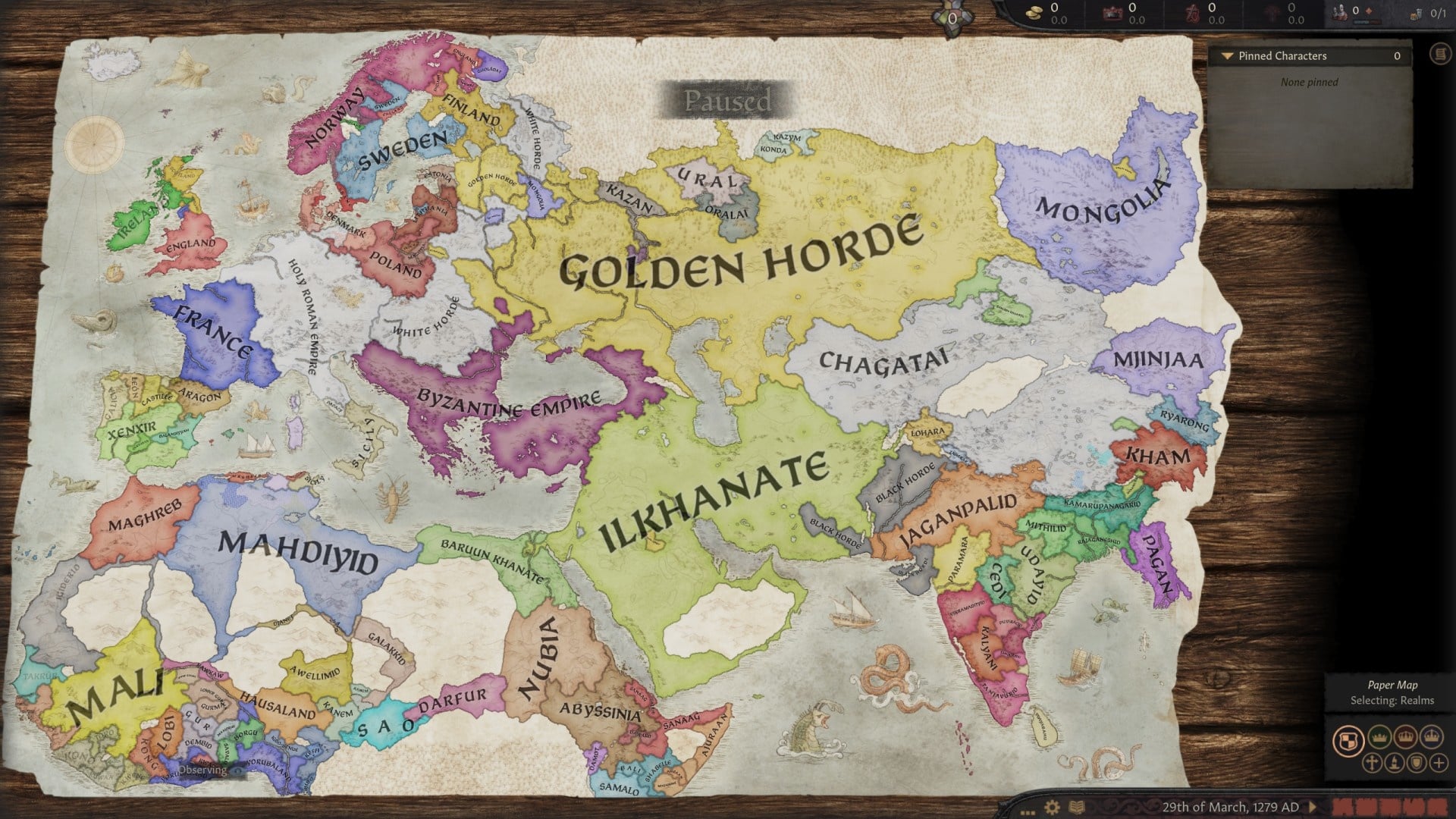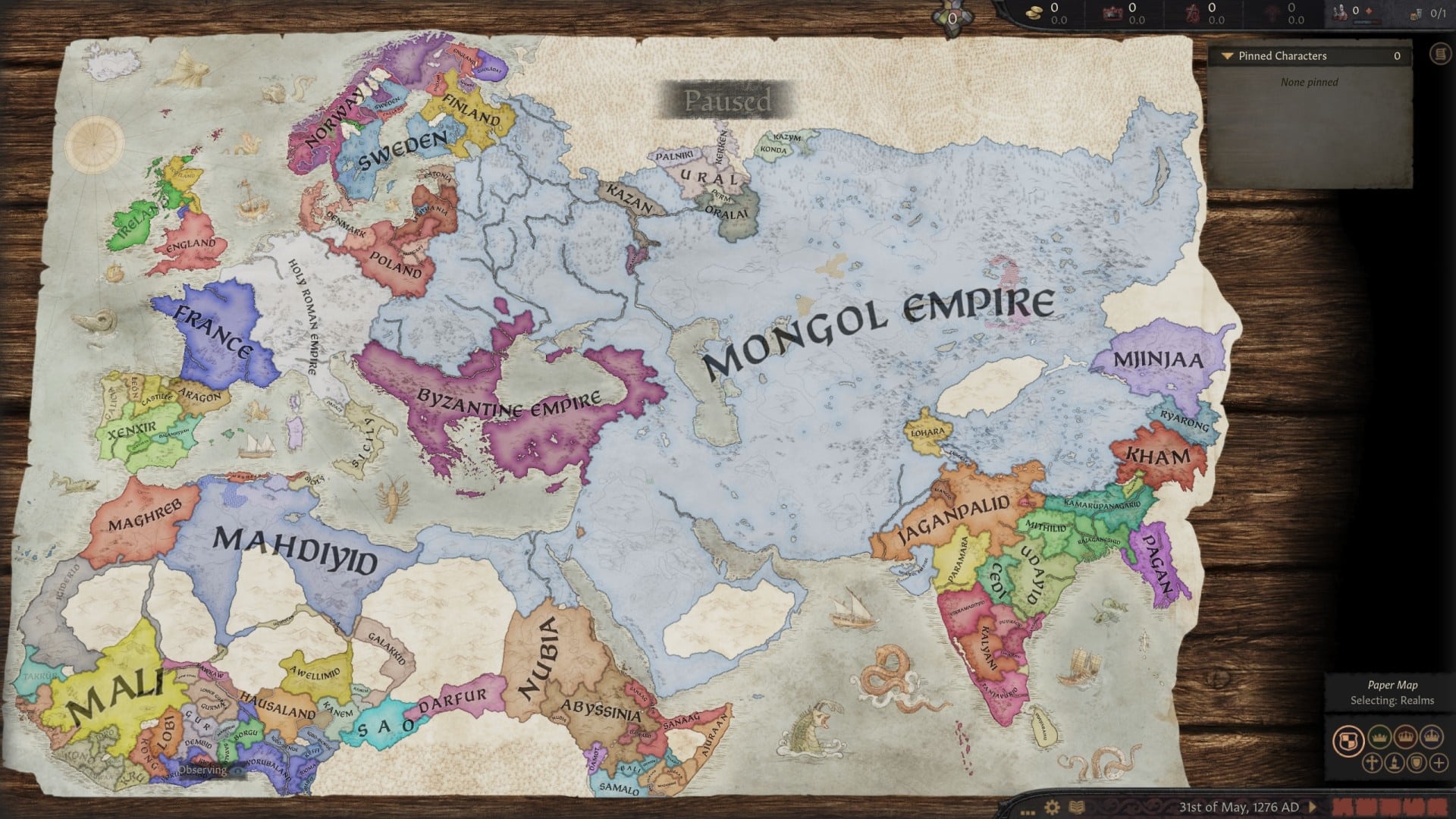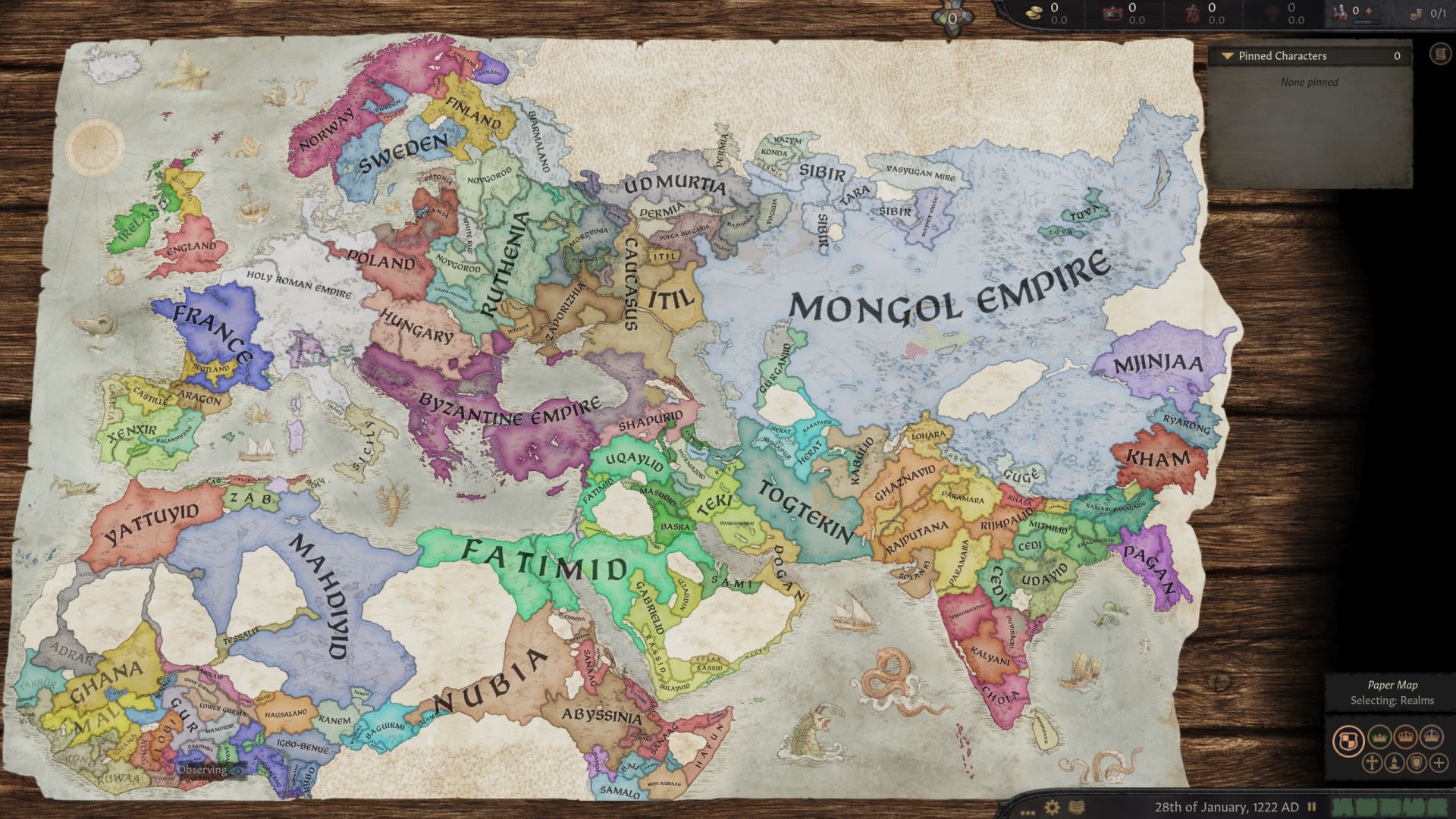We spoke to Paradox about the future of Crusader Kings 3. Together with AI improvements and the Friends & Foes DLC, it makes for a delightful vision for the years to come.
“I have a lot of plans. We”re preparing the whole team right now to implement things that you”ll probably see in a few years. Really big things! Very big things.”
This short excerpt from our interview with Crusader Kings 3”s game director, Alexander Oltner, really says it all about the ambitions of the man who took over responsibility for Paradox”s most media-present global strategy game last year.
While the heads of the company”s other titles (Stellaris, Europa Universalis 4, Victoria 3 and Hearts of Iron 4) were a little more reserved in their respective interviews with us at PDXCon in Sweden, Oltner hardly hid the fact that he is planning more than just a few fluff DLCs.
Crusader Kings 3 celebrated its two-year anniversary at the convention in Stockholm, where hardly any press was on site, as it was already clear in advance that there would be no announcements. All the better opportunity for us to talk to the developers in peace about their games and their future.
Table of Contents
Even more role-playing and character interaction
Concretely, the game director has three major aspects in mind. First, he wants to deepen the character interactions in Crusader Kings 3 even more. The small DLC Friends & Foes will contribute to this as early as 8 September, which contains over a hundred new events around the relationship to other characters, mainly to the said friends and rivals.
In addition, we can expect longer and more multi-layered events. For example, a very accomplished councillor who does not come from noble circles can trigger a chain of events that revolves around admiration and envy. While the wise councillor idolises you, he or she gets on the nerves of everyone else, who then press you to put the man or woman in his or her place on the basis of origin. So you have to choose or compromise between your minions and the adviser over several events.
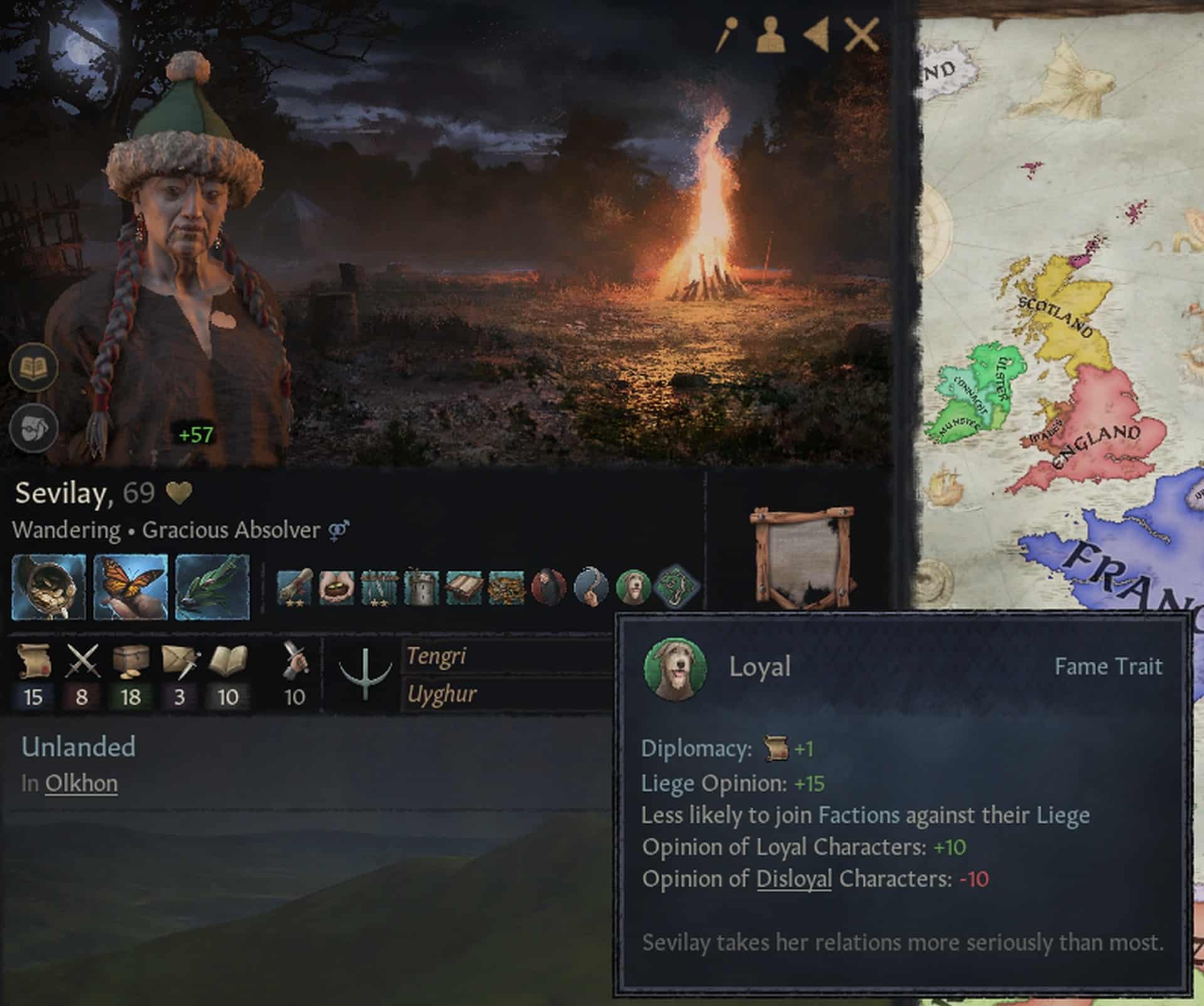
As a second example, Oltner told us about the deeper consequences that can result from relationships. Because until now friends in particular were limited to what they did not do (such as not going to factions), their role now becomes more active. They can send help in the form of money or soldiers or invite you to a party if they notice you are lonely on your birthday.
With childish amusement, Oltner told us at this point that your character could still remember this event 30 years later. Whether he de-stresses or builds up stress when he looks back will then depend on whether his friend is still alive, whether they are still friends and whether he still has the present or whether it was stolen!
The reminder system offers new possibilities
Long-term effects like these are made possible by a new memory system that will be introduced with the upcoming free patch. From then on, every character, including the AI, will have its own menu window in which all special (and not secret) events in the character”s life will be recorded. And because that is not enough, parts of the memories even disappear as you grow older.
These records not only give you the opportunity to get to know the AI characters better, but also allow the developers to include long-term events like the birthday party 30 years ago. It also allows them to address specific events in existing events instead of remaining vague. Last but not least, it makes it possible to address shared experiences between two characters.
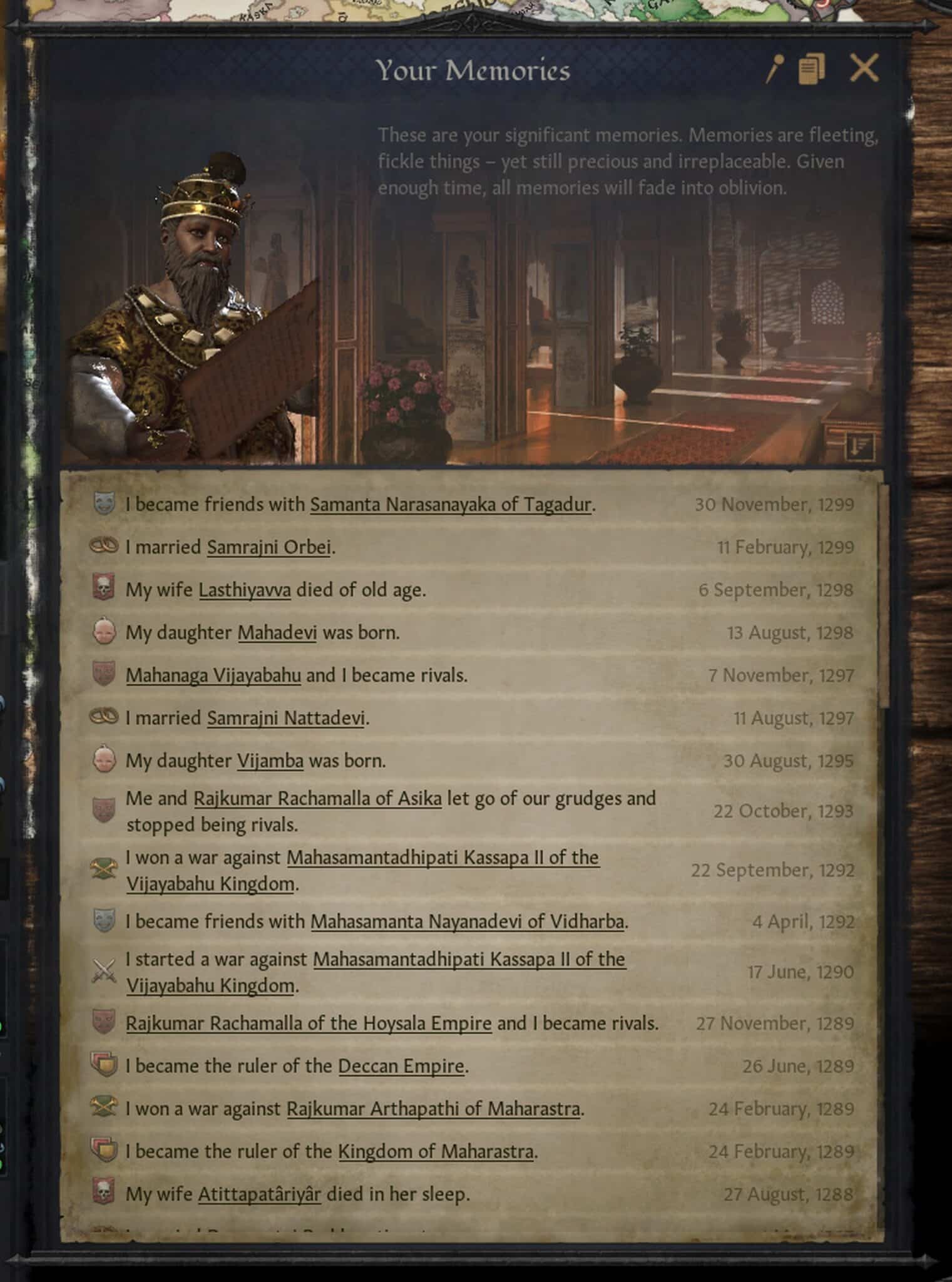
In addition, the game will now also better point out to you who your friends and enemies are and how the (un)happy union came about in the first place. Especially for the role-players among you, the memory system should be a very interesting feature.

The AI gets smarter – and builds buildings
The second foundation for future development is to be the AI, which is to be significantly improved with the coming patch, especially with regard to the economy and empire stability. To this end, the AI will be given some new tools. Above all, the AI will now construct more buildings and strengthen its own domain. For this purpose, the AI characters will be divided into four (secret) economic archetypes based on their characteristics:
- The warlike type will always aim for a full war chest (and declare wars) and only then invest in his empire.
- The cautious type wants to be ready in case war is declared on him. He will build up slowly but surely without taking too many risks. If he feels safe (for example, if he has not been to war for a long time and there is enough money for the army), he will invest. He will also hardly ever fight wars.
- The Builder will expand his empire whenever possible and take risks. He only prepares for war when there is imminent danger. The builder archetype, however, is said to be the rarest.
- Finally, there is the Random type who proceeds without any apparent strategy.
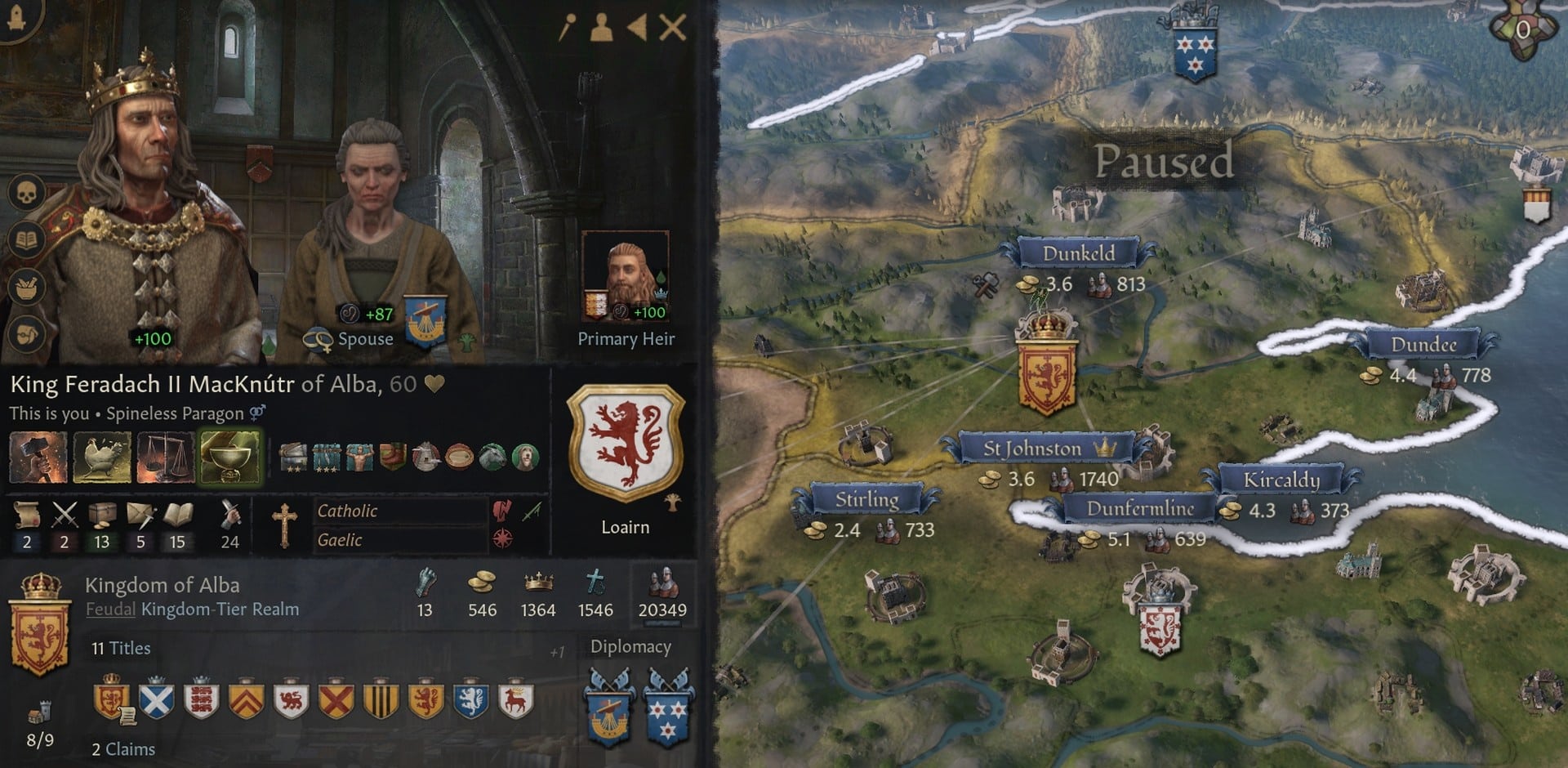
Generally, the AI will now develop the capital first, then the domain and finally the rest of the empire. By drawing on a stronger economic base in this way, it can keep up much better, according to internal tests, especially later in the game when the buildings have more and more effect.
Empires become stronger and more stable
In the same vein are the improvements to the AI”s diplomacy and domestic politics. By now also using tyranny, it will secure important counties in its duchies. She should use more tools to keep vassals in line, such as finding out their secrets and then blackmailing them to get better vassal contracts.
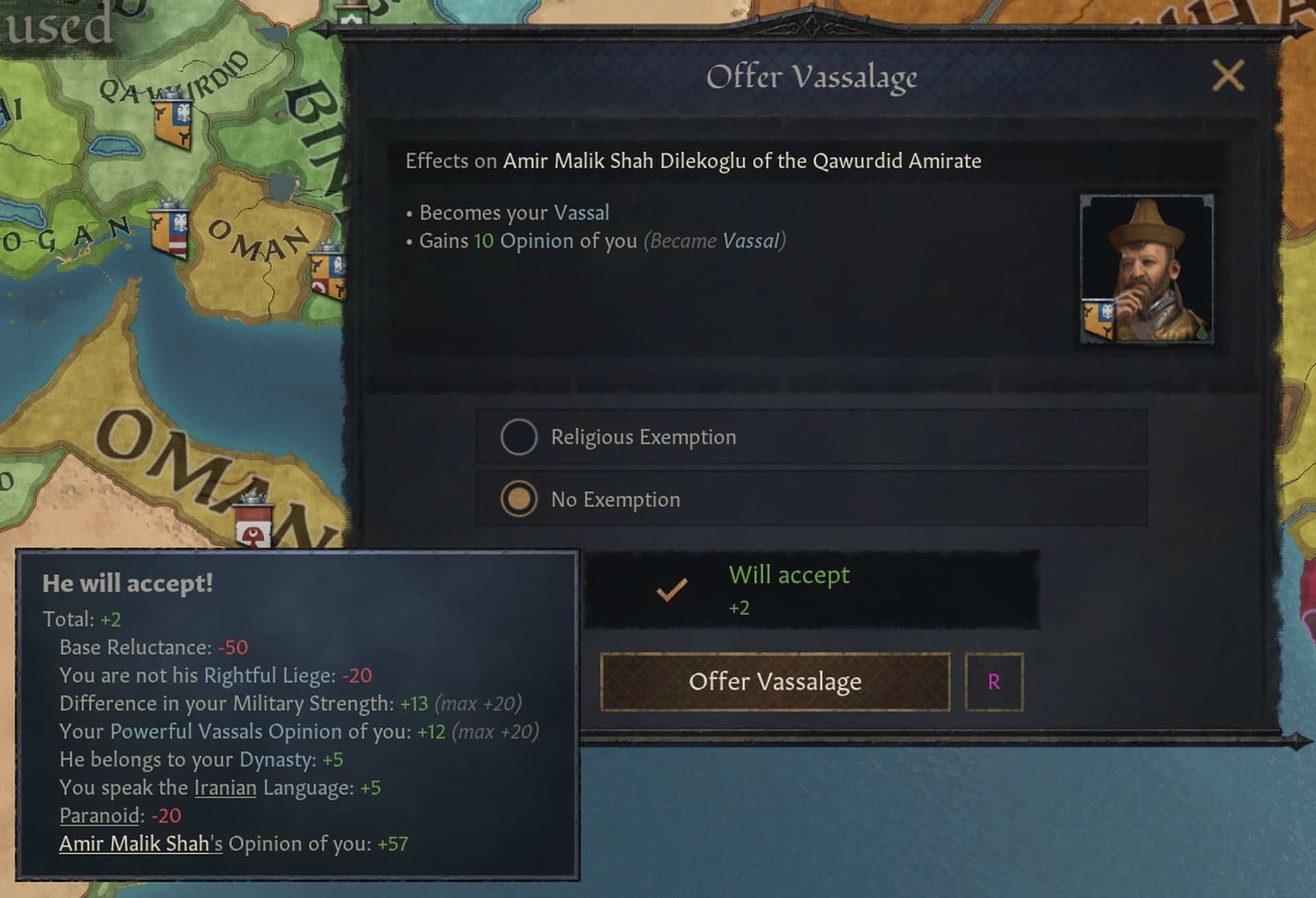
Also, the AI will now actively try to diplomatically vassalise surrounding minor rulers, which it could not do before. Likewise, it can now join religious defence wars based on its personality, which was previously bugged according to the developers. If you want to know all the details on this, check out (the developers” dev diary)!
In the end, all the AI improvements probably lead to more stable empires and more intense wars because the AI can draw on greater revenues. Also, after the collapse of a great empire, successor empires rise from the ashes more easily because the AI is smarter about expanding its power base. For example, there should no longer be French kings who have their only county on an English island somewhere.
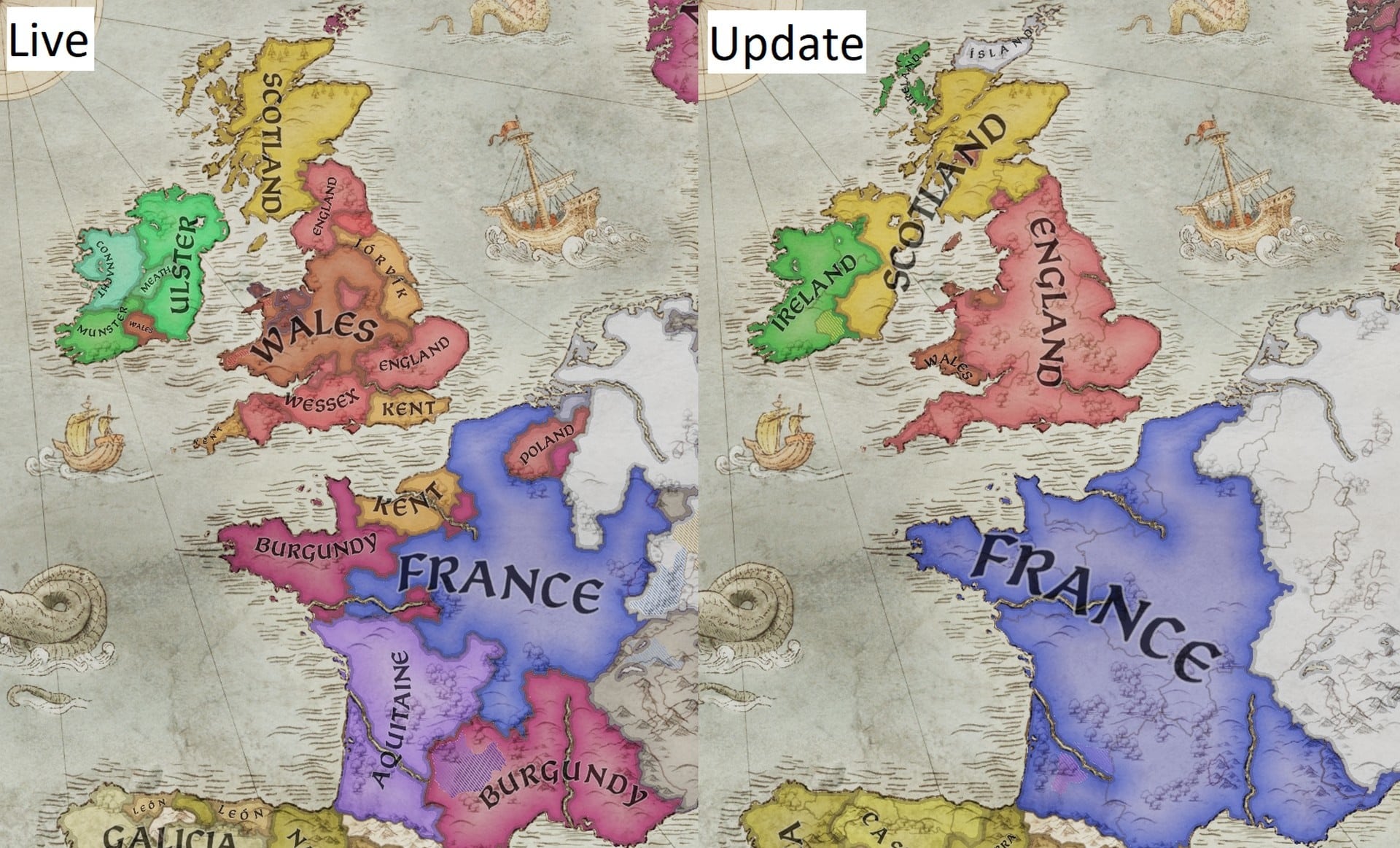
(Due to the economically and politically smarter acting AI, empires now remain more stable or become bigger more easily. But this should still not lead to the same empires always appearing on the map.)
The big plans after that
Although these are all sensible changes, the promised “big things” are still missing. In an interview, Oltner let us take a look at his cards. One thing is for sure: there will be a big plague mechanic. In general, there will be a lot more to do with mid- and end-game crises. The developers have finally managed to make it possible for the Mongols to reach Europe and pose a serious threat.
In addition, areas will continue to be equipped with special game systems and additional flair, such as Spain most recently through the Fate of Iberia DLC. On the one hand, this should encourage players to try out other regions of the world and, on the other hand, differentiate the cultures and religions even more. Up to now, Muslims and Christians, for example, have played relatively similarly. One of these regions that will be in the spotlight sooner or later is India.
Finally, Oltner talked about his dream of “teaching people that losing is fun.” By this he means that many players sabotage their own enjoyment of the game by not allowing setbacks. To make regaining lost territories more palatable to players, he wants to rely on his own new mechanics in the future. So those who have just lost their realm will get new options at their fingertips and thus experience new content instead of simply repeating what they have already done hours before.
When such content will come, however, the chief developer of Crusader Kings 3 did not want to say. Just like considerations about a real trading system, this is still future music.
Editor”s conclusion
Developers, just like football coaches, like to keep the ball low. So it was a nice change of pace to see that the game director of Crusader Kings 3 clearly has a lot planned and is convinced of the scope and ambition of his upcoming content. The plague, possibly a trade system, crises. Cultures, religions and regions that are more different from each other in terms of gameplay … all that sounds really good. Especially in connection with the clever AI improvements that will be implemented in the next patch.
When the game was released, I already complained about the lack of challenge and the low replay value on the game-mechanical level around the actual global strategy. And this seems to be exactly the direction many of the current thoughts are taking.
But the role-playing game also gets new fodder with the new memory system and the DLC, for example, and so the biggest question now might be: Will it all work as the developers promise? I”m especially curious about the AI. But the detailed explanations of the changes make sense and so I am relatively optimistic that Crusader Kings 3 will take major steps forward very soon. And then we just have to wait for those really big things to come around the corner that Oltner has announced with a tone of conviction. But Crusader Kings 3 is only at the beginning of its life cycle.

